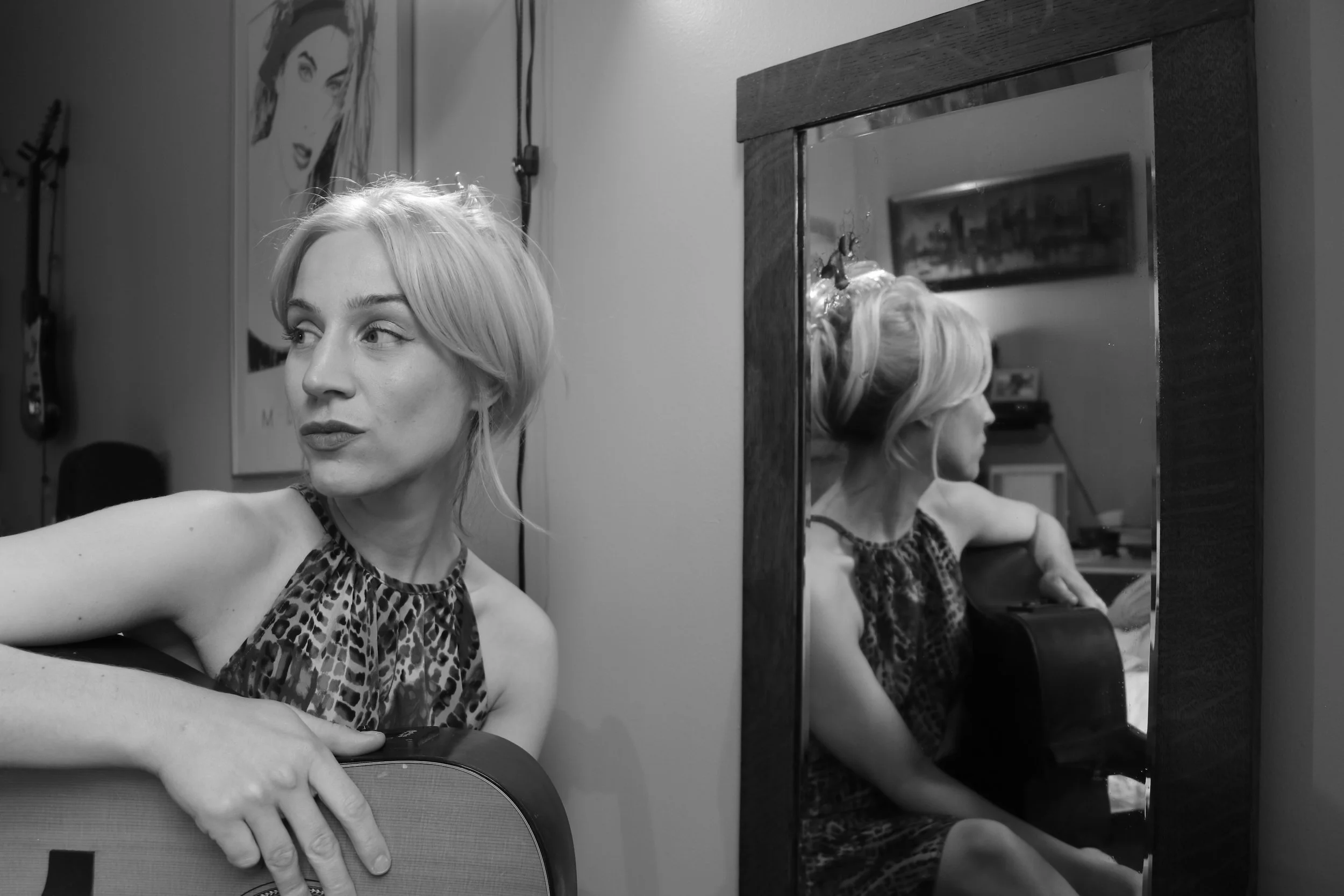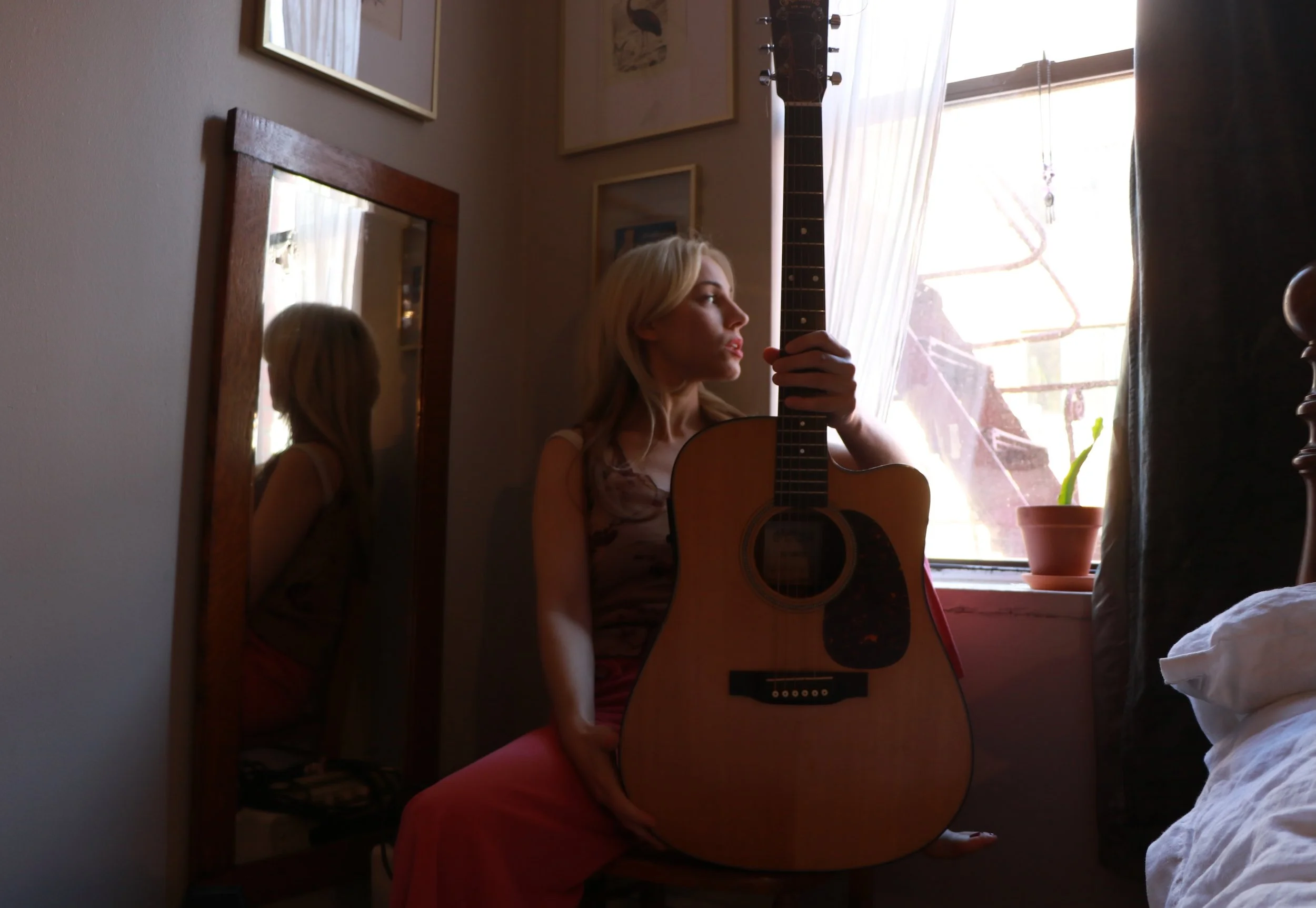Inside “I Can’t Relate to You”: An Interview with Sara Rachele
Sara Rachele’s new single, “I Can’t Relate to You,” is haunting, unfiltered, and achingly human. The Atlanta-born singer-songwriter, now splitting her time between Nashville and New York, dives deep into emotional disconnect and the limits of language with a rawness that feels both cinematic and deeply personal. Rachele exposes the fractures of failed communication, offering a portrait of solitude painted in three different shades.
Co-produced with soul veteran Binky Griptite and featuring a lineup of celebrated musicians, “I Can’t Relate to You” feels intimate even in its grandest moments. Across its indie, Americana, and acoustic renditions, Rachele invites listeners to sit with discomfort, to feel the tension of unspoken words, and to waltz sadly, slowly through a space where connection never quite takes hold. We talk to Sara Rachele about the process behind the single, the sonic choices that shaped it, and the emotional truths that inspired its creation.
Your new single, “I Can’t Relate to You,” began as an attempt to write a love song but evolved into something much more complex. Can you describe the moment or process when you realized the song was about the inability to connect rather than love itself?
When I work on a composition, it often begins as a sort of processing but ends up with a flicker of something useful. Which usually gives me the idea of what I’m writing about—like Ruth Stone’s “catch the poem by its tail”—and helps me figure out the emotions I’m having at the time, instead of going into writing a song about a particular concept. Or even if I do, the song reveals itself to me, not the other way around. As often as I wish it were so.
The song exists in three distinct versions—indie, Americana, and solo acoustic. What does each version reveal about the song’s emotional core, and how did you decide on these different arrangements?
This song needed to stretch. My colleague Kris Sampson knows how to translate a take from an artist into a soundscape. I gave him what I knew he could use to do his thing. He shines in that, in showing how cinematic the emotion behind the song could be. I really feel it. With Chris Cubeta, he’s the tracking engineer, so you get a precise and stark expression of how we recorded everything. He is a director even when he’s turning knobs. And he’s definitely a director when he mixes. I feel like the real nature of the song is available with this mix—it’s what we did. And the acoustic version is me singing it out of my spirit. That’s the closest to the emotional core of the tune I can muster. There’s nothing else.
Across the three versions, there's this evolving emotional architecture. Was there ever a moment when you felt like one version was truer than the others, or are they all different truths?
I’m a folk singer. The song, when I’m by myself, ultimately feels like the starkest, most lonely one. Maybe it’s because it’s just me sonically, but I feel like—the rawness of that lonesomeness, that to me is the most true. This one feels the most—or the least, I suppose.
There’s a striking vulnerability in expressing a failure to connect so directly. What led you to share that moment with such plain honesty, rather than framing it through metaphor or emotional distance?
“I Can’t Relate to You” is a direct address. There was no way to put a metaphor around the utter failure of this sentiment—to the vision I wrote it to, to myself, I couldn’t hide. Music does that to me sometimes.
You mentioned this idea of playing the song at a gravesite, stripped bare. What do you think the setting of a song does to its meaning? How does space change the way we hear pain?
I recently became a custodian of a historic space. Setting changes things so much. I listen to my own music in many different spaces. I write in many different spaces. I record in various settings as well. I drag my skin sack all over the world to get at this. I don’t know what it does. Whether it’s the space—the womb of a church from the 1880s, with a hollow space below and above, or a random Courtyard Marriott in middle America—the space I’m in changes the way I create and the way I hear.
You’ve worked with some incredibly seasoned collaborators on “I Can’t Relate to You.” What's something they added that completely surprised you or changed your direction mid-process?
I like to be the least seasoned one in the room. I’ve gotten lucky with that. It’s the great joy of my life actually. In this case, it was pretty much directed by me, but I’ll say that Chris Cubeta—his tape machine at Studio G changes us all. It is the great dictator of my work; it freezes us in the act. For me, it’s the big challenge, the ultimate performance, the biggest audience. Forever. It’s the biggest surprise every time. I’m on fire for it.
Looking ahead, how do you envision your sound evolving from this point? Are there new themes or styles you want to explore following this release?
I follow the songs, and sometimes the settings too. I’d like to evolve to where I can write one sentence as good as a line from Nick Laird’s “Glitch.” I’d like to continue doing it. I’m sort of trapped in this instrument of mine, and all I can say is I am feeding it.


